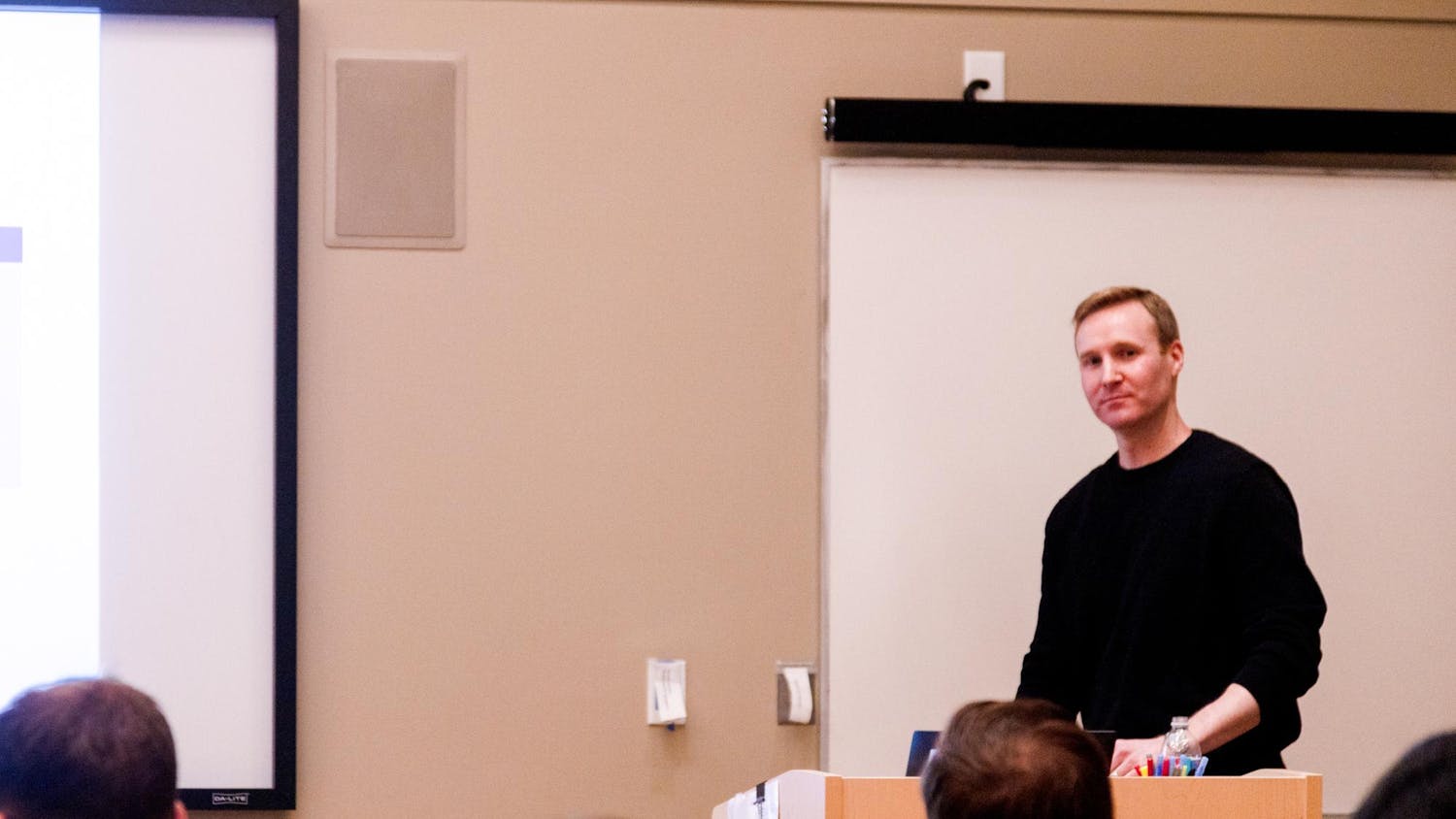In his lecture Monday night, renowned medical anthropologist and physician Paul Farmer stressed the importance of rebuilding infrastructure and human capital in the ongoing effort to restore Haiti after the devastating earthquake in January.
Farmer spoke to a Salomon 101 filled with students, faculty, Farmer's colleagues and prominent Haitian figures like musician and recently appointed Visiting Fellow Wyclef Jean and author Edwidge Danticat MFA'93.
In his opening, Farmer introduced Jean to the crowd and announced his appointment as a visiting fellow in the Department of Africana Studies.
Lack of infrastructure is one of Haiti's biggest challenges in its recovery process and should be the top priority, Farmer said. He referenced the U.S. Navy's hospital ship that was stationed at Port-Au-Prince after the earthquake, saying that while the floating hospital helped to save lives, its presence brought into question a larger issue.
"The problem is the best hospital in Haiti should not be floating in the water, it should be rooted on Haitian soil," Farmer said. "It was a great thing to have, but we need it all the time and on terra firma."
Work on new medical infrastructure for Haiti is already underway, Farmer said. He presented plans for a new medical center that he, along with several universities, Partners in Health — which Farmer co-founded — and other corporations, helped design in the city of Mirebalais.
Beyond addressing infrastructure, Farmer said, focus should be on "human capital and how we can build that up."
In a video that concluded his lecture, Farmer showed the story of two Haitian survivors, Carmen and Sheila, who both lost their legs during the earthquake. Both young women now use prosthetics to walk and work with non-profits in Haiti to help fellow disabled Haitians. This is an example of how human capital can help bring Haiti forward, Farmer said.
In discussing possible ways to rebuild Haiti, Farmer referenced specific accounts from people, both Haitians and foreign doctors, who were in Haiti directly after the earthquake. Farmer said that lives were saved thanks to the immediate response available.
"Granted there were probably less than 1,000 lives saved, but that's still a lot of lives to save if you ask me," Farmer said.
Farmer also emphasized that Haitians need to be the central actors in Haiti's rebuilding efforts. He described a Haitian pharmacist and colleague who, after losing family members in the earthquake, was still part of the primary response team after the earthquake.
"These were Haitians responding to the problems of Haitians," Farmer said. "That is the primary response that was registered, Haitians helping Haitians, and that is important to remember."
Haiti still faces two large obstacles in a lack of housing and removal of rubble from the earthquake, Farmer said. He showed pictures of a temporary camp set up in Haiti for survivors.
Farmer said that when trying to help Haiti, sometimes the right responses are the most obvious ones.
"I'm really hoping I'm going to win the Nobel Prize in medicine for discovering that treatment for hunger is called food, and there is this really great treatment for thirst called water," Farmer said, drawing laughter from the crowd. "I'm beginning to think after all these years that humans may actually need food and water every day."




